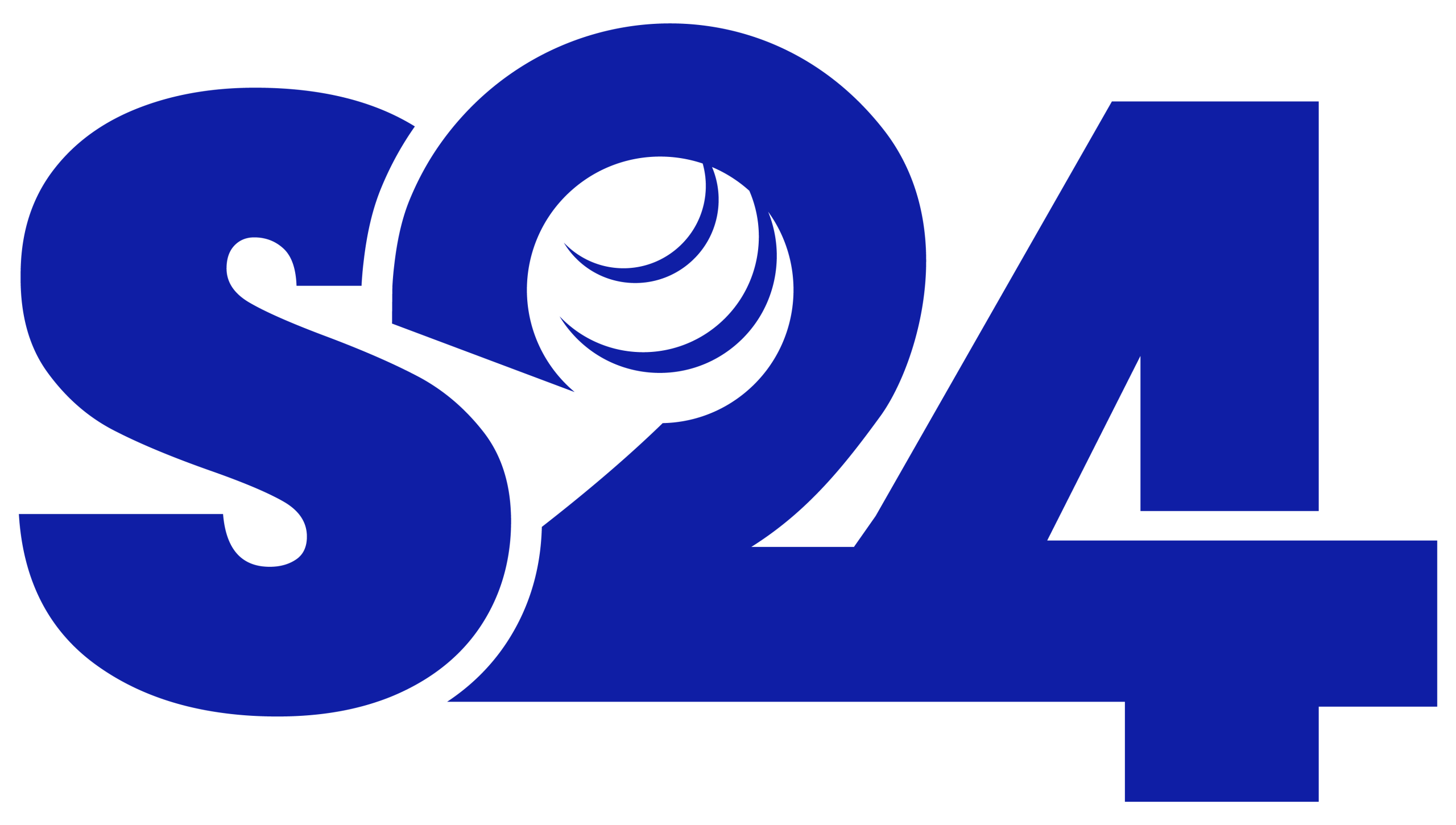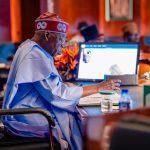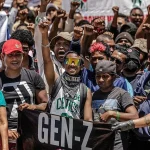The controversy surrounding Nigeria’s long war against Boko Haram took a fresh twist this week after former President Goodluck Jonathan claimed that at the height of the insurgency, the militant group once nominated Muhammadu Buhari to represent them as a negotiator. But in a swift and firm rebuttal, Garba Shehu, a former presidential spokesperson and close aide to the late President Buhari, dismissed the claim as “false, misleading and politically motivated.”
Speaking at the public presentation of “Walking with the Generals,” a memoir by former Chief of Defence Staff, General Lucky Irabor, Jonathan reflected on his administration’s struggles with Boko Haram. He noted that during one of the attempts to open peace channels, the insurgents “nominated General Muhammadu Buhari to lead their team to negotiate with the government.”
Jonathan suggested that if Buhari had indeed been the insurgents’ preferred choice, perhaps peace efforts might have taken a different trajectory once he assumed office in 2015.
The former president’s remarks immediately stirred political and public debate, with many recalling the challenges his administration faced in balancing military operations with negotiation attempts.
Garba Shehu, who served as Senior Special Assistant on Media and Publicity to Buhari, wasted no time in issuing a statement strongly denying Jonathan’s account.
“Boko Haram never nominated Buhari to negotiate on their behalf,” Shehu declared. “Jonathan’s claim is false and misleading. To say otherwise is to rewrite history.”
Shehu argued that Jonathan’s comments appear timed to create political narratives ahead of the 2027 presidential elections, hinting that the former president may be preparing to return to active politics.
He cited specific evidence to counter Jonathan’s claim:
Buhari was a Boko Haram target. In July 2014, Buhari narrowly escaped death when his convoy was bombed in Kaduna, an attack later linked to Boko Haram. “How could the same group plotting to kill him also trust him as a negotiator?” Shehu asked.
Factional confusion. Shehu explained that a splinter group once listed Buhari’s name in a press conference held in Maiduguri, but that faction had no legitimacy within Boko Haram’s leadership. The group was later disowned by the main insurgent structure under Abubakar Shekau.
The disagreement touches on one of the most sensitive chapters in Nigeria’s fight against Boko Haram whether negotiations were ever a viable option.
Jonathan’s administration, particularly between 2012 and 2014, pursued multiple tracks: direct military confrontation, amnesty-style proposals, and attempts at back-channel talks. However, most efforts collapsed amid mistrust, splinter groups within Boko Haram, and continued bombings in Abuja, Kano, Maiduguri and other cities.
Security analysts recall that some Northern elders once called for Buhari, then a prominent opposition leader, to play a mediating role. But official records show that Buhari publicly rejected being associated with Boko Haram, insisting he had nothing to do with them.
Shehu’s rebuttal underscores this point. “It is on record that Buhari always denounced Boko Haram as terrorists. He had no contact with them, and they consistently declared him an enemy,” he stated.
The exchange has reignited public debates online. On X (formerly Twitter), some Nigerians argued that Jonathan’s recollection may reflect the desperation of his administration to explore any option for peace, including involving opposition figures. Others accused him of attempting to shift responsibility for failed security policies.
Supporters of Buhari, meanwhile, insist the former president was a consistent opponent of Boko Haram and would never have been accepted as their mouthpiece.
Analysts also warn that politicizing Boko Haram’s history risks undermining serious discussions about Nigeria’s ongoing security challenges. Despite years of military campaigns, the insurgency now splintered between Boko Haram and ISWAP remains active in the North-East, causing mass displacement and economic disruption.
The exchange between Jonathan and Shehu is about more than historical accuracy; it speaks to how political narratives around Boko Haram continue to shape Nigeria’s political battles.
Jonathan’s claim, whether rooted in memory or politics, attempts to reframe how his government’s negotiation efforts are remembered. Shehu’s rebuttal seeks to protect Buhari’s legacy as a president who launched major offensives against the insurgents.
As Nigeria inches closer to the 2027 elections, such contested recollections will likely resurface, with politicians drawing on the Boko Haram years to strengthen or discredit opponents.
The Boko Haram war remains one of Nigeria’s darkest and most complex security challenges. While political leaders debate the past, millions of Nigerians in the North-East continue to live with its scars. For many citizens, the priority is not who Boko Haram allegedly nominated for talks, but whether the country can finally achieve lasting peace.
As the Jonathan–Shehu spat plays out in the media, the episode underscores a sobering truth: Nigeria’s insurgency is not just a matter of bullets and bombs, but also of memory, narrative, and political legacy.








